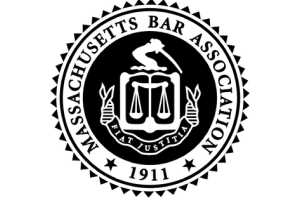Case Study, Witness Intimidation: Taking a cell phone to prevent someone from calling 911 can be charged as witness intimidation, but not until a criminal violation has been committed.
On July 18, 2018, the Supreme Judicial Court issued a new opinion in the case of Commonwealth v. Fragata, which reversed a conviction for witness intimidation. As with any criminal defense case, if you or a loved one is charged or being investigated for a crime, you should contact a Lowell witness intimidation defense attorney to give you specific advice regarding your unique situation.
Case Takeaway: taking a cell phone to prevent someone from calling 911 can be charged as witness intimidation, but not until a criminal violation has been committed.
The facts in Fragata involved allegations that the defendant’s girlfriend was upset and was going to call the police because of the nasty language the defendant was using. The defendant took her cell phone from her and begged her not to call 911. He then was allegedly assaulting her, holding her against her will, and choking her. The jury found him not guilty of strangulation, assault and battery with a dangerous weapon, and kidnapping. The jury did find him guilty of witness intimidation.
During the closing argument, the prosecutor only highlighted one theory of witness intimidation: that the defendant took the victim’s telephone away from her after some “abusive language,” but prior to any physical assault. The prosecutor argued this was witness intimidation for preventing her, a potential witness, from calling 911. The SJC held that at that moment in time, there was insufficient evidence that a “possible criminal violation had occurred that would trigger a criminal investigation or proceeding.” In essence, because he prevented her from calling 911 prior to a “real” reason for her to call the police, he had not impeded a witness at any stage of a criminal investigation.
Problems for the Future
The SJC did include some broad language regarding when impeding an investigation could constitute a crime. For instance, the Court noted that “[t]he Commonwealth was not required to prove that an actual crime had occurred or that a criminal investigation was in process when the alleged intimidation occurred.” The Court further noted that “depriving a victim of access to one can certainly qualify as an act of intimidation when a potential witness seeks to report a possible criminal violation.” However, the prosecutor is required to prove that the act of intimidation, or in this case the taking of the phone, occurred at a moment in time when the defendant would have intended to interfere with the anticipated investigation.
Result
Holding that the jury could not convict the defendant on the advanced theory, but finding that there were other possible theories of guilt that the Commonwealth could have proceeded with at trial, the Court vacated the conviction and remanded the matter for a new trial.
This marks yet another decision in the past several months regarding witness intimidation and the judiciary narrowing the scope of this broad statute. The use of this crime as a means to charge individuals for non-violent acts involving a witness or potential witness has dramatically increased in recent years. If you or a loved one is charged with witness intimidation, call witness intimidation defense attorneys Murat Erkan and Ryan Sullivan to discuss your case and your options today.





